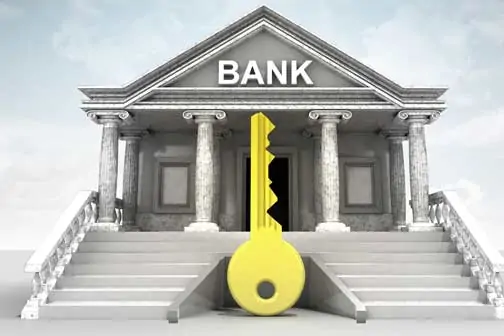Paisabazaar app Today!
Get instant access to loans, credit cards, and financial tools — all in one place
Our Advisors are available 7 days a week, 9:30 am - 6:30 pm to assist you with the best offers or help resolve any queries.
 Get the App
Get the App

Get instant access to loans, credit cards, and financial tools — all in one place

Scan to download on


A recent study showed that one out of three customers is dissatisfied with his/her bank and wants to switch. Here’s why:
Contemporary banking has transitioned to the Internet, mobile, apps and ATMs. However, some banks have not made the necessary tech investments, while others are not adept at the virtual shift. ATMs being out of order, websites facing downtime, net banking being unavailable on weekends, delayed re-crediting of failed transactions, etc. are major pain points for customers.
Customer satisfaction today is tied to bank’s performance with respect to new-age digital progressions. Banks failing to measure up to modern technology standards therefore fall off their customers’ radar.
Higher charges levied on services, sometimes even masked, is one of the biggest customer grievance areas. Despite high efficiency, the price tags on banks’ services can be appalling. For instance, a certain bank levies Rs 750 as penalty on non-maintenance of average quarterly balance, and in case your cheque bounces, be prepared for a debit anywhere between Rs 300 and Rs500. Naturally, customers want banks to lower the high charges levied on the products and services.
Apart from higher charges, customers face the problem of charges not being communicated. Many of us are unaware that the bank levies a service fee on cash withdrawals from the branch, until we see the amount debited. Some banks charge late fees and penal interest without sending reminders for credit card payment delays. This lack of transparency often irks customers.
Note: The RBI has issued a directive to banks to waive off the late payment fees for a delay of up to three days on credit card payments. If your bank still levies late payment charges, take it up with them.
Following liberalisation of the savings bank account rate by the RBI, certain private banks are offering a 5%-7% interest rate, which is higher than the regular 4%. Other factors remaining constant, it only makes sense to move to a bank offering higher returns.
Other than regular savings accounts, Fixed Deposits (FDs), loan products, etc. banks need to offer differentiated products that guarantee customer retention and loyalty. For example, some banks provide the sweep-in sweep-out facility, meaning that above a certain threshold, the balance is automatically moved to a fixed deposit where higher interest is yielded. This is better than your money staying locked in a low interest savings account. While certain banks allow seven-day deposits, others insist on a minimum one-year tenure. Customers obviously prefer banks offering greater flexibility.
Another reason why customers switch is because banks suggest irrelevant financial products or investments. A recent Economic Times survey showed that three of five customers found the products suggested by their banks unsuited to their needs. The same study also revealed that several banks were suggesting traditional money-back and endowment policies, even though they neither offer neither high returns nor adequate insurance.
Apart from the above, other drivers for bank-switching are marriage, divorce, desire to use a local bank, need for more convenient branch locations, mismatch between offered accounts and banking needs, etc. It is also seen that young adults tend to switch nearly two times more frequently compared to older consumers, for overlapping reasons such as high fees, need for better digital services, weak loyalty programmes, etc.
Making a smooth transition
If for any of the above reasons, you decide to switch your bank, plan accurately. This eases the transition process to the new bank.
Choose your new bank carefully, as financial institutions constantly change their operations, product offerings, fees, etc. Further, issues like time taken for deposited funds to become available for use could also get complicated. It is vital to read any fine print thoroughly before signing on with the new bank.
Do your homework and select a bank with acceptable fee structures for savings and/or current accounts, and convenient branch locations. Other important features to consider are lower fees, lower loan rates, higher interest rates, convenience, better technology offerings, etc. However, intangible factors like customer service quality and efficiency of internet banking, mobile banking, and apps could be tough to determine.
Although switching is a good idea in the long run, it can initially be cumbersome and overwhelming. Closing an account and making transfers is inconvenient and time consuming. Concerns about important cheques/payments bouncing during the transition are other deterrents.
Among the new bank’s account requirements, the most important are minimum balance, monthly fees, deposit preferences and channel for deposits (online transfer, cheque, and cash). Ensure all required documentation is in place and submitted to the new bank on time.
After understanding the type of deposits preferred by your new bank, start the account opening process by depositing the necessary funds.
Features you need to cancel at your old bank and set up at the new one are direct deposits, recurring transfers, linked accounts, safe deposit boxes, banking alerts, manual and automatic bill payments, text banking, etc.
For payments on bank auto-debit, close all bills paid through your old bank and set up the payments through your new bank. The old account should be emptied and closed after all automatic payments are re-routed, everything in your old bank account has cleared and you have no outstanding payments.
After switching banks, ask your employer the process to change your direct deposit information. This is usually done by the next pay cycle.
Your finances are one of the most crucial, sensitive, and private facet of your life. If you are unhappy with your current bank’s services, switch at the earliest.